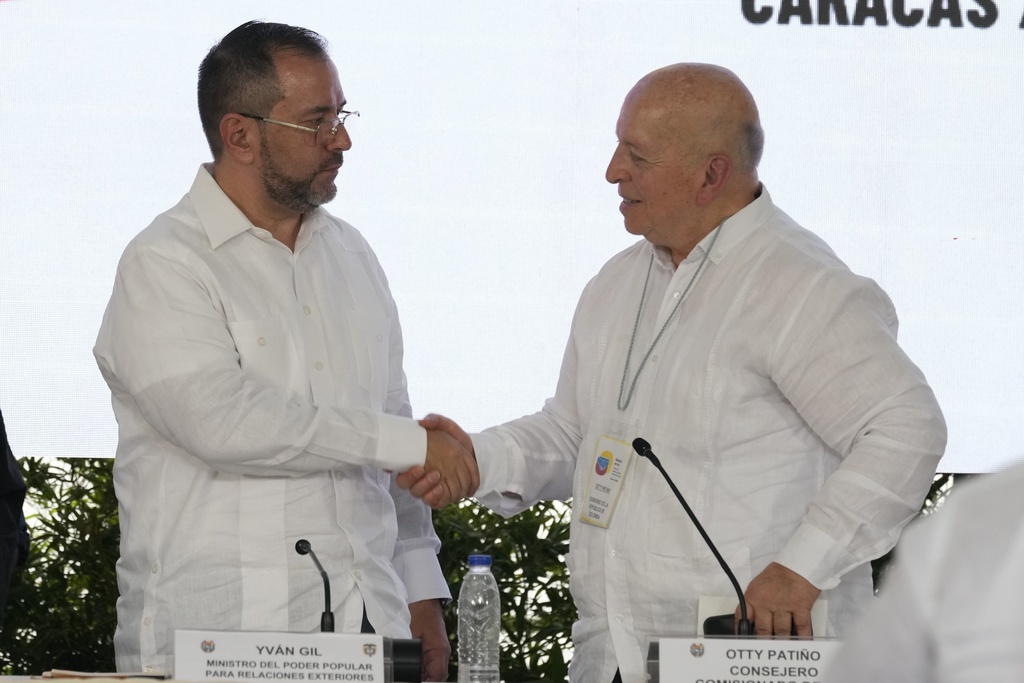
In another step forward to realizing Colombian President Gustavo Petro's plan for "total peace", Segunda Marquetalia, one of the country's main armed groups, has agreed to a unilateral cease-fire during peace talks in the Venezuelan capital of Caracas.
The group, one of the largest factions within the Revolutionary Armed Forces of Colombia, or FARC, and headed by Ivan Marquez, agreed to a cease-fire, de-escalate military operations and return hostages during talks that included Otty Patino, Colombia's high commissioner for peace; Armando Novoa, the government's chief negotiator; and Marquez.
READ MORE: Colombia, EMC armed group begin peace process
The group broke out with the FARC after rejecting a 2016 truce agreement. It is one of several armed factions that Petro's administration is engaging as it seeks to end armed conflict in Colombia.
The government is in peace talks with multiple guerilla groups, but negotiations have sputtered at times. The deal with Segunda Marquetalia could give momentum to an ongoing effort to de-escalate conflict in territories such as Catatumbo, and parts of Antioquia, where FARC offshoots have resurged, said Carlos Medina Gallego, a political analyst and professor at the National University of Colombia.
"In general, there are expectations with (Segunda Marquetalia), but the route is entirely different from what could be followed with the Central General Staff, an organization facing significant problems in maintaining the peace process, or with the National Liberation Army (ELN), which is experiencing a crisis due to the organization's decision to create a state of stagnation in the (peace) process," Gallego said.
Segunda Marquetalia may have been most prone to agree to a deal because it is seen as one of the weakest of the various active groups, Colombian Senator Ariel Avila said.
While the agreement announced on June 30 is a positive development, hurdles remain in completing the peace negotiations with Segunda Marquetalia, not least in terms of securing legal assurances.
ALSO READ: Colombia suspends truce with EMC armed group in 3 areas
"Legally, the path is very difficult because Ivan Marquez signed the 2016 peace agreement with the extinct FARC, and all of them have problems receiving legal benefits," Avila said.
Negotiations are ongoing, with one cycle of talks held so far, said Avila. Ultimately, however, a final deal may not go beyond that achieved with the FARC eight years ago.
More talks are already scheduled, including a planned meeting in Tumaco, Colombia, on July 20 to present the deal. Gallego suggested that during that meeting, contacts could be established between the group and the government.
The writer is a freelance journalist for China Daily.


